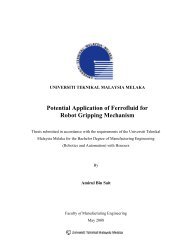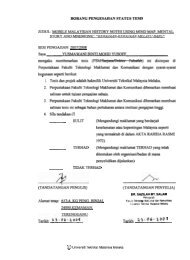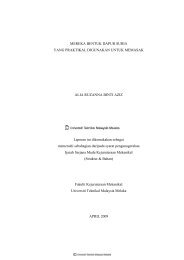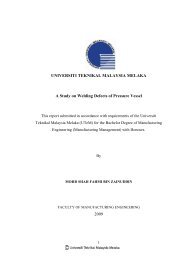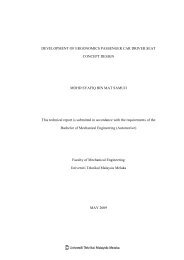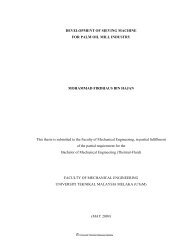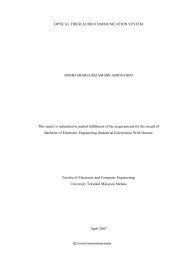Brand, Identity and Reputation: Exploring, Creating New Realities ...
Brand, Identity and Reputation: Exploring, Creating New Realities ...
Brand, Identity and Reputation: Exploring, Creating New Realities ...
You also want an ePaper? Increase the reach of your titles
YUMPU automatically turns print PDFs into web optimized ePapers that Google loves.
Rethinking the br<strong>and</strong> management of family businesses -<br />
Does family add value <strong>and</strong> how do you manage it?<br />
Joachim Kernstock, Centre of Competence for <strong>Br<strong>and</strong></strong> Management, St. Gallen, Switzerl<strong>and</strong><br />
Claudius König, CloserLondon, London, United Kingdom<br />
Introduction<br />
This paper reviews family heritage‘s position as a core element in br<strong>and</strong> identity (Balmer 2010, Balmer, Greyser &<br />
Urde 2006, Balmer & Greyser 2002). It will aim to better underst<strong>and</strong> the value of family in terms or br<strong>and</strong> management<br />
<strong>and</strong> company leadership. It examines weather the adoption of a family feel adds value to a br<strong>and</strong> both internally <strong>and</strong><br />
externally <strong>and</strong> looks at its affect across four distinct family business archetypes.<br />
Definition<br />
When it comes to defining a family business we acknowledge three different established perspectives. In order to<br />
underst<strong>and</strong> the use of "family" in br<strong>and</strong> management, it is necessary to differentiate it from common definitions of<br />
family businesses.<br />
Firstly there are approaches combining start-up <strong>and</strong> entrepreneur activities (Abimbola & Vallaster 2007). In this study,<br />
entrepreneurship approaches are excluded, because of the limited access to "heritage", which is developed over time.<br />
There are definitions of family business derived from the entrepreneur <strong>and</strong> founders research community. Definitions of<br />
family business in this context can be described as follows: "A business actively owned <strong>and</strong>/or managed by more than<br />
one member of the same family."<br />
Secondly, family businesses are often considered as being limited to small <strong>and</strong> medium sized companies, in which a<br />
special leadership style is responsible for success. This is often discussed under the term of Mittelst<strong>and</strong> leadership. This<br />
study does reflect on the often mentioned Mittelst<strong>and</strong>, which in the recent crisis has become an increased topic of<br />
interest due to their resilience during this period.<br />
Mittelst<strong>and</strong>, understood as a mindset <strong>and</strong> leadership principle has previously been discussed by Porter (1990) in his<br />
study about the competitive advantage of nations <strong>and</strong> analysed as a key success factor of italian midsized companies<br />
<strong>and</strong> by Simon in (2009) in his book Hidden Champions of the 21 st Century in relation to many German companies. In<br />
other recent publications Mittelst<strong>and</strong> is reconsidered as a superior governance principle <strong>and</strong> also connected to family<br />
businesses (Talaulicar 2010).<br />
Thirdly, there is a politically driven "official" approach to family businesses that uses a broader definition of family<br />
business. The European Community has provided an "official" definition, when a firm is considered as a familiy<br />
business: " (1) The majority of decision-making rights is in the possession of the natural person(s) who established the<br />
firm, or in the possession of the natural person(s) who has/have acquired the share capital of the firm, or in the<br />
possession of their spouses, parents, child or children‘s direct heirs. (2) The majority of decision-making rights are<br />
indirect or direct. (3) At least one representative of the family or kin is formally involved in the governance of the firm.<br />
(4) Listed companies meet the definition of family enterprise if the person who established or acquired the firm (share<br />
capital) or their families or descendants possess 25 per cent of the decision-making rights m<strong>and</strong>ated by their share<br />
capital." (European Commission 2011).<br />
This underst<strong>and</strong>ing of family business is part of the European commission‘s presidents program, who consider the role<br />
of family businesses <strong>and</strong> their special in-depth orientation to corporate social responsibility <strong>and</strong> long term management<br />
perspectives important in terms of sustainable economic growth. Therefore they believe that family businesses should<br />
be supported by the European Community, a centiment which is backed up by Barroso (2007).<br />
However, all these definitions <strong>and</strong> approaches to evaluating family business tend to base their definitions on ownership<br />
<strong>and</strong>/or corporate governance. Cultural aspects, internal <strong>and</strong> external communications <strong>and</strong> customer <strong>and</strong> employee<br />
relationships appear to be a significant area that has been under examined when evaluating family businesses. Further<br />
more, the overarching aspect of br<strong>and</strong> management <strong>and</strong> identity, which touches all of these areas can prove to be a key<br />
indicator in relation to identifying a family influence.<br />
These aspects are important in order to underst<strong>and</strong> br<strong>and</strong> management <strong>and</strong> its use of "family" in relation to addressing it<br />
to stakeholders, or as a differentiator to market competition. "Family" as a differentiator can be emphasised either<br />
internally creating a specific corporate culture or externally shaping the br<strong>and</strong> in the market place.<br />
In order to identify family businesses this paper sets two principal distinctions towards any corporation: (1) Family<br />
founding is present as opposed to public/state or investors founding of a company. (2) The focal corporation is not a<br />
founders business or a start-up, set by an entrepreneur, but it is a established business (knowing well that establishing a<br />
business is different depending on the industry exposure). An internet establishement counts in months, whereas private<br />
banking, its business <strong>and</strong> its br<strong>and</strong>, needs decades (Abimbola & Vallaster 2007).<br />
98



